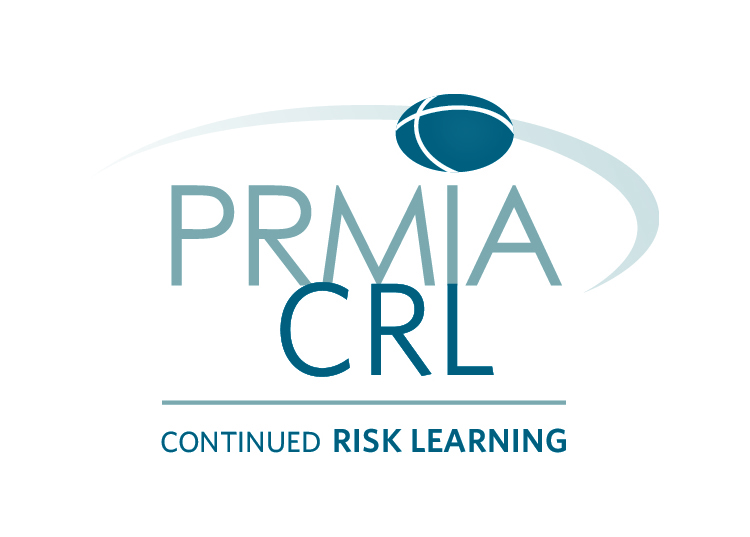Certificate of Team Leadership in Crisis Risk Management

New Course! The Certificate in Advanced Leadership in Crisis Risk Management is intended for individuals leading the efforts to prepare for crises within their institutions and implementing preventions that will reduce the likelihood and impact of any crisis of whatever sort.
 Date:
Date:
6 sessions
July 25-27, 2022
August 1-3, 2022
 Time:
Time:
9:00 a.m.-12:30 p.m. EDT
14:00-17:30 BST/GMT
(One 20-minute break)
 Presented By:
Presented By:
John Deverell, The Prepared Mind
 Session Length:
Session Length:
6-days | Live Training via Zoom
(recording not available)
| About This Course |
|
Adverse events will happen – it is just that the nature and timing may well be unforeseen – a poor or slow response will compound the situation and turn the adverse event into a crisis.
Organized around Seven Principles for Crisis Preparedness and Crisis Management, the Advanced Leadership in Crisis Risk Management series addresses a variety of issues that can lead to a crisis if not handled in an effective and timely manner. Participants in the 6-day course will discuss these issues, explore potential remedies for each issue to avoid a major crisis, and learn the components that make up a crisis preparedness and management plan.
Designed and delivered by world leading experts in the field, the course is a must-have for any risk manager wishing to demonstrate their competency in crisis risk management and for any team that is tasked with developing a crisis preparedness and management plan.
Key Objectives and Learning Outcomes
After the course, participants will:
- Apply the principles of effective crisis preparedness and crisis management
- Carry out practical day-to-day risk identification and mitigation through the systematic use of risk registers and contingency planning
- Advise on the principles of crisis communication, reputational risk and media guidance
- Write and apply an effective crisis preparedness and crisis management plan
- Contribute significantly to building an appropriate ethos and team practice in order to reduce the likelihood and impact of crises
- Apply the principles and applicability of good leadership and appropriate responsibility at all levels
- Create and lead tabletop exercises in order to identify and resolve potential and actual crises
- Play a meaningful part in crisis recovery and sustainability within an institution on a longer-term basis
|
|
| Agenda |
| Date |
|
Topic |
Monday,
July 25
|
|
Introduction: An introduction to Crisis Risk Management and modern day crises
- General points about early warnings and “predictable surprises”
- Introduction to the Seven Principles for Crisis Preparedness and Crisis Management
- Overview of issues that can lead to a crisis
|
|
|
Lesson 1: “Have a plan for when things go wrong – and rehearse it”
- Review of surveys from around the globe
- Review plan components
- Discuss the longer-term consequences of crisis
- Review plan parameters, conditions, and benefits
|
Tuesday,
July 26
|
|
Lesson 2: “Listen” - Listening, acting, and building trust – internally and externally
- Discuss timely escalation of issues at each level of management
- How to resolve potentially adverse relationships
- How to engage in meaningful communication
- How to negotiate, mediate, and conduct dispute resolution
|
| |
|
Lesson 3: “Get the right people together”
- Review the structure of the crisis team
- Responsibilities related to advising on media guidance, legal privilege and discoverability, reconciliation of legal and public relations dynamics, and handling specific situations
Interactive workshop/breakouts: Participants consider the factors inherent in a potential crisis, discuss and practice the application of an effective crisis plan.
|
Wednesday,
July 27 |
|
Lesson 4: “Be open, be transparent”
- Discuss how to handle reputational issues by improving an institution’s profile, presence and publicity, and building the online community
- Learn the components of a reputational audit that addresses media handling with agility and forethought
|
| |
|
Lesson 5: “Act early, act decisively”
- “OODA loop”: observe, orientate, decide, act
- Review risk registers and contingency planning, and discuss the process for coming to decisions in a timely manner
Interactive workshop/breakouts: Participants consider the factors inherent in a potential crisis, discuss and practice the application of an effective crisis plan.
|
Monday,
August 1 |
|
Lesson 6: “Don’t forget discoverability”
- Review discoverability, including forensic examination of all media as well as legal privilege, while considering compliance, regulators and penalties
- Discuss timeliness in raising concerns and not letting matters fester
- Determine preparedness to change direction regardless of investment in time, energy and money, in a course of action that is no longer tenable
|
| |
|
Lesson 7: “Understand and accept fully the implications of accountability and responsibility”
- Overview of RACI/ARCI
- Review differences between accountability and responsibility
- Discuss the principles of good leadership and the true meaning of accountability
- Review the importance of delegation, the need to set clear parameters, and the appropriate use of initiative and judgment
- Discuss the relevance of training, resourcing, guidance and support
|
Tuesday,
August 2 |
|
Lesson 8: Conclusion: principles for achieving ‘the Prepared Mind’ at a time of crisis
- Review of materials
- Preparations for final assessments
- Q&A with instructor before small teams begin assessment presentations
|
| |
|
Assessment Preparation and Presentation
Preparation time in teams, 3 hours | Presentation time, 30 minutes per team
- Teams of 3-5 collaborate to address an assessment topic specific to a Crisis Preparedness plan
- The topic should be aimed at appropriate issues that are relevant for the institution when it comes to potential issues or crises met by the client
- Topics will be defined before or during the course and modalities of the work along with evaluations criteria will be communicated at the beginning of the course to all participants.
|
Wednesday,
August 3 |
|
Assessment Presentation
Presentation time, 30 minutes per team
- Teams of 3-5 present components of a Crisis Preparedness plan to the instructor(s)
- Topics will be defined before or during the course and modalities of the work along with evaluations criteria will be communicated at the beginning of the course to all participants.
|
- Individuals leading the efforts to prepare for a crisis
- Teams tasked with developing a crisis preparedness and management plan
| About Our Experts |
|
|
|
 |
|
John Deverell, CBE is the founder and author of “The Prepared Mind.” Many corporate leaders consider John’s crisis preparedness plans and workshops to be the best in the business. His Army posts included Director Defence Diplomacy in the Ministry of Defence; a divisional and brigade commander; and, seven years as an operational member of Special Forces. As deputy to the US director of the Iraq Survey Group he was instrumental in disproving the pre-war intelligence on WMD and was the first British government servant since the end of the British Mandate to be based in the Palestinian Territories.
After leaving government service, John spent two years on the Executive Leadership Team of Invensys plc, a FTSE 100 multinational engineering and IT company. He was responsible to the CEO for the company’s security and business continuity globally. After a further two years in a senior role with M:Communications, for whom he developed client reputation and crisis management solutions, he established CulturesConnect Ltd in 2013.
Based on his four decades of handling conflicts and crises in the UK and abroad, John writes and leads seminars on the Prepared Mind approach. John has appeared many times on TV and radio, commenting on strategy, risk and leadership. He has an MPhil from the University of Cambridge in International Relations and a diploma in Negotiation and Mediation from the University of Kent. He holds pro bono appointments related to the church, the Middle East and disabled ex-servicemen. He continues to work part time for the British government at home and abroad.
|
| Continued Risk Learning Credits: 21 |
 PRMIA Continued Risk Learning (CRL) programs provide you with the opportunity to formally recognize your professional development, documenting your evolution as a risk professional. Employers can see that you are not static, making you a highly valued, dynamic, and desirable employee. The CRL program is open to all Contributing, Sustaining, and Risk Leader members, providing a convenient and easily accessible way to submit, manage, track and document your activities online through the PRMIA CRL Center. To request CRL credits, please email [email protected].
PRMIA Continued Risk Learning (CRL) programs provide you with the opportunity to formally recognize your professional development, documenting your evolution as a risk professional. Employers can see that you are not static, making you a highly valued, dynamic, and desirable employee. The CRL program is open to all Contributing, Sustaining, and Risk Leader members, providing a convenient and easily accessible way to submit, manage, track and document your activities online through the PRMIA CRL Center. To request CRL credits, please email [email protected].
| Registration |
| Membership Type |
Price |
| Sustaining Members |
|
Per 3-member team from the same organization
|
US $4,575.00 |
| Individual enrollment |
US $1,675.00 |
| Contributing & Non-members* |
|
| Per 3-member team from the same organization |
US $5,250.00 |
| Individual enrollment |
US $1,900.00 |
| *Includes a 12-month PRMIA Sustaining membership per person |
|
If this is your first time accessing the PRMIA website you will need to create a short user profile to register. Save on registration by becoming a member.